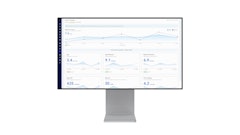Takeaways:
- Agility is key
- Make sure your provider can handle your growth
Even when things are going smoothly and no unforeseen disasters are rising up, supply chains still must be agile and adaptable to the changing flows of business.
Everyone knows how rapidly things change in the electronics market. But even those who don’t make, market or install the chips and other vital components have to be flexible and aware. One such company is Speck Products, a Palo Alto, Calif.-based maker of high-end cases for mobile devices and laptops.
The cases are form-fitting with colors and fabrics for a less traditional look, opening it to a wider demographic than just business people.
“We’re a relatively young company with a background in services,” says Richard Morgan, director of operations at Speck. “We started as a design house. As we moved more into contract manufacturing, we were using Quick Books. At the point we grew into a manufacturing company, we realized we needed a true ERP system.
“We didn’t have much cash or experience with ERP,” he adds. “We were looking for a relationship, something inexpensive and simple to install. The system we were using couldn’t scale as we grew, so we knew it wouldn’t work for us.”
The company’s search for a partner led it to San Francisco-based NetSuite and into the cloud. NetSuite is a provider of cloud-based business management software, which offers a fully integrated system covering ERP/financials, CRM, ecommerce, inventory manufacturing, and more.
“Speck is a fast-growing, mid-market company,” says Roman Bukary, head of manufacturing distribution industries at NetSuite. “It’s an interesting game. They have to be very flexible and dynamic. Speck realized that going on premise wouldn’t be viable, [in part because of all the locations involved in their operation]. So it had to be cloud.”
In addition to its corporate office in California, Speck has contract managing in China, Taiwan, Korea and Mexico; 3PLs for warehousing in Hong Kong, Freemont, Calif., and Amsterdam. Its assemble facility and warehouse is in Tijuana, Mexico.
“At first, we were completely contract management,” Morgan explains. “We bought goods complete, 100 percent of the time. As we grew, we had the opportunity to become more efficient and opened our assembly plant in Mexico. That required work-order manufacturing and a BOM (bill of materials). Then, as we continued to grow, the missing piece [became] MRP (material requirement planning). As Speck was finalizing requirements, NetSuite was assembling an advanced solution referred to as NetSuite Advanced Manufacturing which did have it.”
NetSuite started adding more sophisticated manufacturing capabilities about three years ago, Bukary explains. “We knew that if we were going to be successful in mid-market manufacturing that it was critical that we added MRP.”
NetSuite Advanced Manufacturing is a natural extension to core NetSuite built on the NetSuite platform. “Speck can’t deploy server-based tools to their [multiple] locations, because they’d have software everywhere,” Bukary says. “And the infrastructure might not be good enough. So they use the cloud. They can access it from anywhere, which is why Speck made the decision. They have complete cloud service to run their business.”
NetSuite Manufacturing Edition is a complete solution for operations and supply chain management, including production management and control, manufacturing resource planning, integrated inventory and dynamic replenishment, warehouse management, financial accounting and costing, customer and partner relationship management, contract manufacturing and ecommerce. It’s a SaaS suite that provides visibility and control whether the manufacturer uses a straightforward production process, has an assemble-to order business, is a light manufacturer or a distributor with manufacturing requirements.
The products Speck produces are designed to fit only a specific item.
“Part of our challenge is form fit,” says Morgan. “It’s 90 percent of the business. If Apple launches a new phone [as they did with the recent iPhone 4S] or RIM launches a BlackBerry, our product fits only that form. Products change quickly and the lifecycle is short. If we need 5,000 or 50,000 we need to do it quickly. Purchase orders have to be processed quickly from the demand team to the buyer.
“It’s automatic to suppliers with our manufacture work order process. I get on the phone, call the assembly plant and tell them it’s a priority. They have the work order and can turn it around in a day in Mexico.”
Speck had to move quickly when Apple released the iPhone 4S recently. Luckily for them, the form didn’t change, but other alterations were necessary. “To keep things fresh, we launched new colors. We just had to see what Apple wanted in color/fabric. We don’t have to retool, just get the fabric and color,” Morgan says.
“This is the point I talk about for 2011 and into 2012—a company like Speck can have the same global supply chain as the big companies,” says Bukary. “Finance, inventory, supply chain and manufacturing. They need a deep ERP without the expense, pain and heartbreak of old-style ERPs.
“The story has a theme to it,” he continues. “I’ve been ‘preaching’ internally and externally that it’s not size that determines success in the market, it’s flexibility and agility of your supply chain. How does it respond to disturbances? How smart, flexible, responsive and dynamic is your supply chain? That’s what defines success for the modern manufacturer.”


























